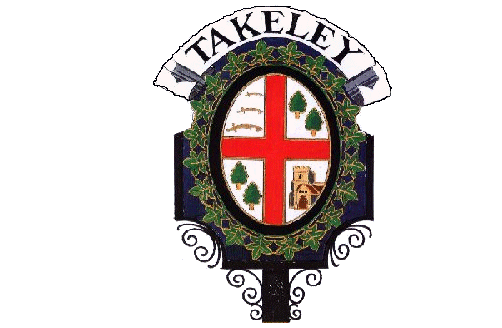|
supplied by Nia Watkiss
1790 when these letters were written was a very turbulent time. The King of a Great Britain (that included the whole of Ireland) was at the start of another phase of his illness that was eventually to render him incapable of governing. In 1790 his ministers were still maintaining a façade that the King was in charge of events, but in reality it was the ministers of William Pitt the Younger who were making the decisions. Parliament was also in a state of change, with the two major parties manoeuvring for power and using jobs, places, peerages to maintain influence and votes. It is important to keep this in mind when reading the letters.
On the Continent France was at the height of the French Revolution. In Ireland, the Capital Dublin was a place of high social activity but also of religious and political tensions over Catholic Emancipation and the possibility of an Act of Union with England. There was also tension in London created by a dysfunctional King and government by the Lord Lieutenant whose power was slowly being eroded by that of the Chief Secretary. William Pitt favoured the Union and Catholic Emancipation. Robert Fowler was opposed to concessions to any “Dissenters”
A short note on the main characters in the letters:-
Robert Fowler, the Anglican Archbishop of Dublin from 1779 to 1801. He had the reputation of being an absentee prelate, and certainly his last two years were spent at Bassingbourne Hall in Takeley, Essex. As Anglican Archbishop of Dublin, Fowler was head of a minority church especially in Southern Ireland. The Battle of Boyne in 1690 had ensured the domination of the protestant faith, and as in England, Catholics together with Jews, were denied access to most positions of power and influences. This produced tensions at all levels and had resulted in a rebellion in Ireland. Fowler’s own Palace at Tallagh had been raided for weapons before the rebellion of 1789.
William Pitt the Younger 1767-1818 became Britain’s youngest ever prime Minister at the age of 24 years. He favoured Catholic Emancipation and Act of Union.
The Earl of Buckingham replaced the Earl of Westmoreland as Lord Lieutenant in 1790.
Robert Hobart was the eldest son of the Earl of Buckingham and he became the 4th Earl in 1804. In 1790 he was Chief Secretary for Ireland, and was strongly opposed to Catholic Emancipation.
W.W.Grenville [William Wyndham Grenville] or the 1st Baron Grenville , was Home Secretary for England in 1790. He supported Catholic Emancipation, and it was under his Government that the Act abolishing slavery was passed in 1807.
HMC Fortescue: Sackville: Lothian.
Fortescue ( Grenville) MSS 1698-1790
R. Hobart to W.W.Grenville. Private. 1790 February 17, Dublin.
After many attempts to prevail on Lord Westmoreland to promise to recommend him for the Primacy and a peerage, the Archbishop of Dublin has determined to go to England, with a view, I do suppose, of laying his services in person before his Majesty, and making his own representation of the engagements of Lord Buckingham. I think it necessary to apprise you of this, that you may take such steps as appear most advisable. The situation in which the Archbishop stands with Lord Westmoreland is, briefly as follows-
His Grace claims a promise from Lord Buckingham of a peerage at the next creation of peers.
Lord Buckingham acknowledges that he promised to recommend his Grace for that honour, but positively denies that he made any engagement for its being carried into effect’ not considering himself authorized by his Majesty to enter into such an engagement.
Lord Westmoreland has signified to his Grace that he was willing to communicate to the King’s confidential servants, for his Majesty’s information, the Archbishop’s claims and pretensions; but that he could not state as an engagement of Lord Buckingham’s government, that which he did not acknowledge to have made.
My private opinion of the business is that Lord Buckingham had gone very far in his expressions to the Archbishop upon the subject, always looking to the possibility of its being refused in England, and I also think that the making of the Archbishop a peer, would be attended with extremely bad consequences to the Government. It would be a precedent which others would avail themselves of, and be productive of great dissatisfaction and difficulty.
With regard to the Primacy, I do not find that Lord Buckingham ever held any other language than that it was a point absolutely reserved for England; although he might have given the Archbishop to understand that he thought his services gave him fair pretensions.
Upon both subjects Lord Westmoreland stands perfectly clear, resting the whole business on the claims derived from Lord Buckingham’s not having encouraged his Grace to expect more or less than he was entitled to from these claims.
The Marquis of Bute to W.W.Grenville. 1790 February 21 [Stowe]
I have just time, after writing to Hobart and finishing the enclosed to say three words to you upon the same subject. I have hitherto sent all these correspondences through Hobart, and I should have referred this angry prelate back to Ireland but that he was determined to see you. You will therefore ask him for my letter of the 30th which he has got in his pocket, and you will see for thence the sort of way in which to treat his claims. ( this is in italics)
My notes from the next letter. The Government were proposing to make four new peers. The king was not happy at the inclusion of the Bishop of Limerick, but Limerick was not happy at not being made a peer. Westmoreland wanted him [Limerick] as a peer & the alternative was Mr. Pery in the Commons still, as he is an “ honourable and respectable supporter”
W.W.Grenville to R. Hobart Private. 1790 February 26. St James’s Square.
I have just seen the Archbishop of Dublin and have heard from him a long statement of his claims and services. The only answer which I have made him was, that I had, at the time, been apprised by Lord Buckingham of his decoded conduct during the business of the Regency, which I felt as strongly as any man. That with respect to the object which he solicits, that of a peerage, I had from Lord Buckingham himself a positive disavowal of his having made any such engagement as his Grace stated; and that the King’s servants could receive only from the late Lord Lieutenant alone statements of the late Lieutenants engagements. And from the [present] Lord Lieutenant alone recommendations to those marks of favour which by constant practice the Lord Lieutenant is allowed to recommend. That as his Grace’s present application did not come before the King’s servants in either of these shapes, I could not even enter into it , or discuss with his Grace the propriety of his wishes.
This is the substance of a long conversation, as far as I had any share in it. What was stated by him was only a repetition of what you have already heard, and which it is therefore useless for me to repeat; but I thought it necessary to apprise you for my Lord Lieutenant’s information. And your own, of what passed on my part.
Copy W.W.Grenville to George III. Recommends Mr. Pery for a peerage.
1790. George III to W.W.Grenvill. He agrees.
W.W.Grenville to the earl of Westmoreland. Private. 1790. March 2. St. James’ palace.
[ These are my extracts from a long letter]
The King is very reluctant to opening the door for conferring the distinction on any of the bench of Bishops, and I cannot but say that I see very strong objections to it. These are strengthened by what has lately passed on the subject of the Archbishop of Dublin. He came over here, as you know, to state a complaint on this subject; and he received for an answer, both from Mr.Pitt and myself, that, as his pretensions to a peerage were neither supported by any engagement stated by the late Lord Lieutenant, nor by any recommendation from you, it was impossible for the King’s servants here to enter into any discussion with his Grace on the subject, without breaking in upon that line which they were determined to adhere to with respect to Irish Government. As this matter now stands, I think he has no grounds of complaint. I should not be quite so clear of this if another Bishop were made a peer, though on different grounds.
Earl of Westmoreland to W.W.Grenville. 1790 March 9 [The Bishop of Limerick] insists on being made a peer]
…..necessity of fulfilling this engagement on the part of the Administration to a degree that cannot be resisted. It is too late to consider the objections. The Archbishop’s case seems quite separate. The promise of honours which brought the Bishop and his son ( in italics) from a different line of political pursuit; and the advantage the Administration will receive in the new Parliament, is plainly a House of Commons transaction and agreement, and cannot give any form to his Grace’s pretensions, who has not still, I hope the modesty to claim an engagement, and who can plead no service but in the House of Lords; a service I should think very fairly to be expected from an Archbishop of Dublin.
1 April 1790 W.W.Grenville to the Earl of Westmoreland.
The King agrees to a Mrs. Foster being recommended for an Irish peerage
.jpg)
Acknowledgement to "The National Library of Ireland, Dublin and Robert Allen Johnson of California"

|



